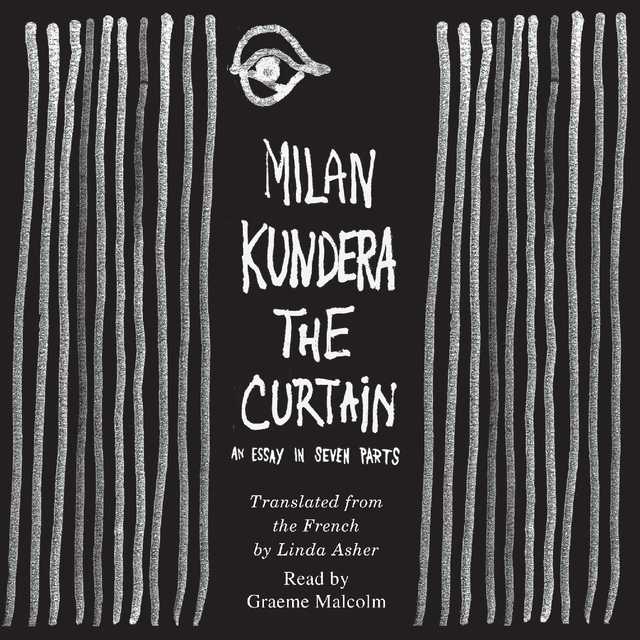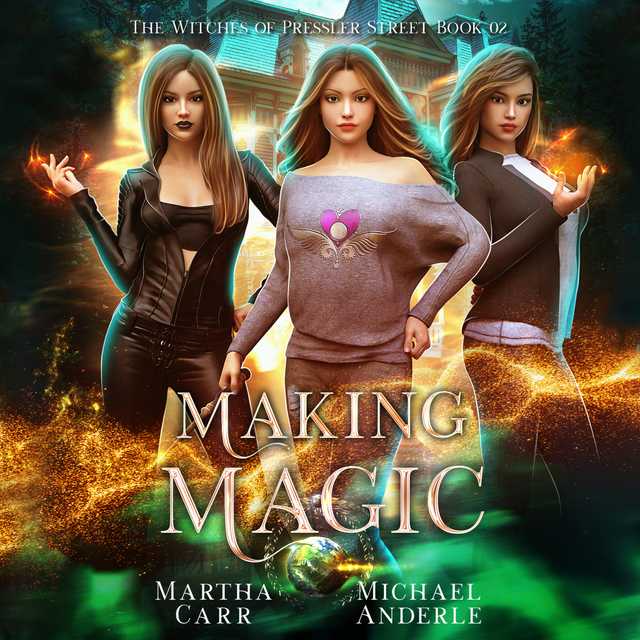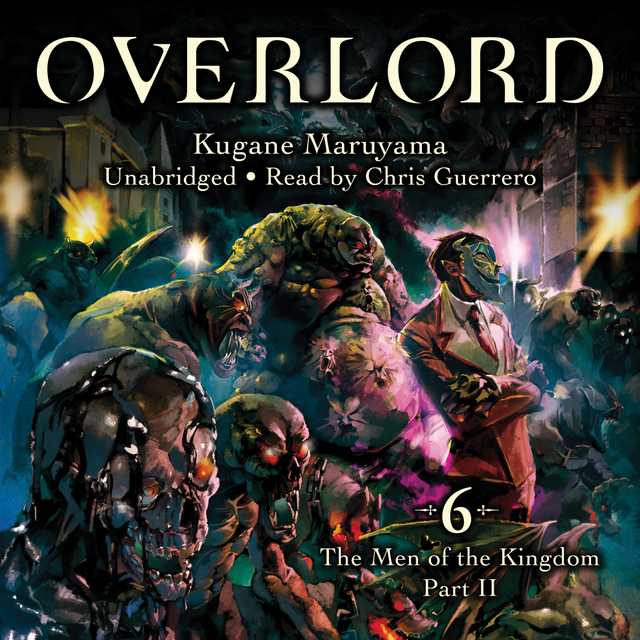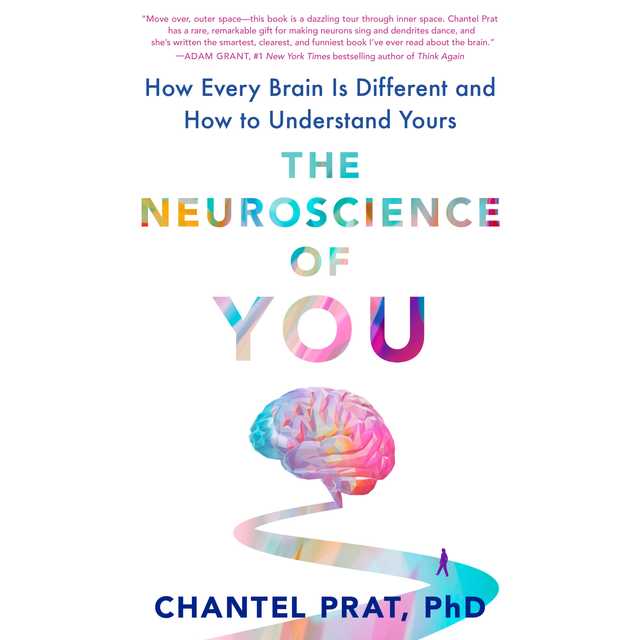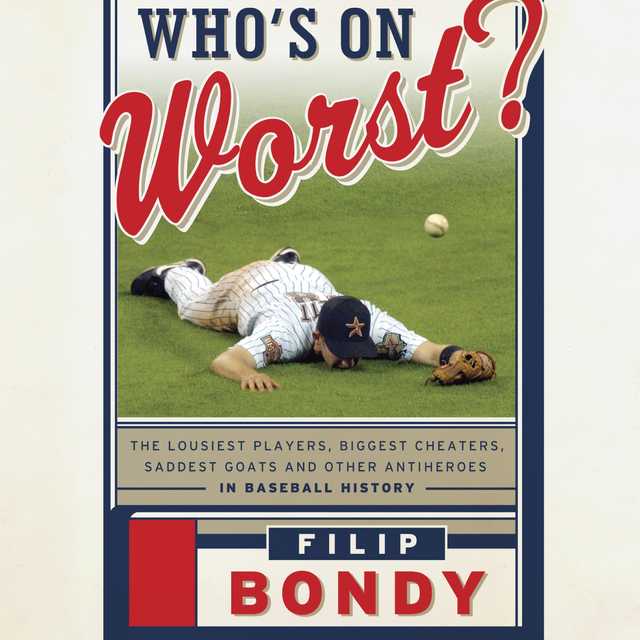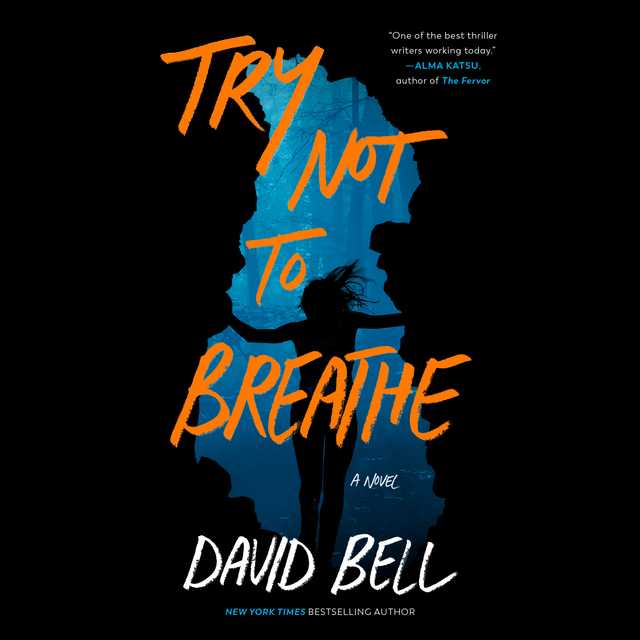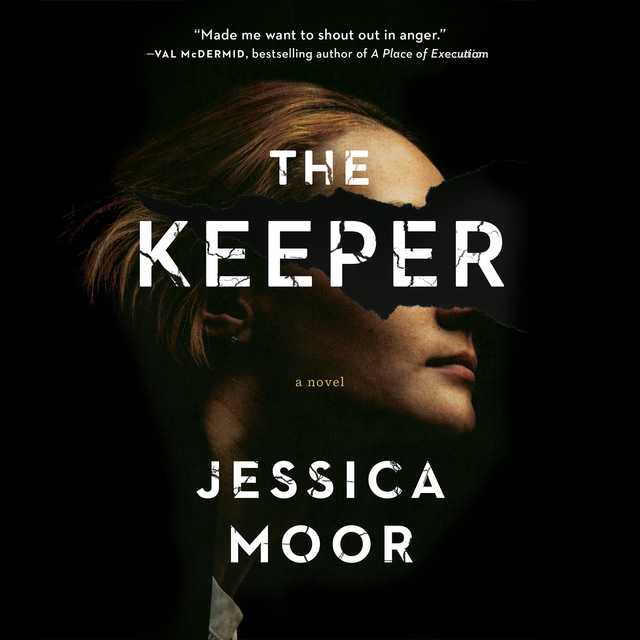The Curtain Audiobook Summary
“A magic curtain, woven of legends, hung before the world. Cervantes sent Don Quixote journeying and tore through the curtain. The world opened before the knight-errant in all the comical nakedness of its prose.”
In this thought-provoking, endlessly enlightening, and entertaining essay on the art of the novel, renowned author Milan Kundera suggests that “the curtain” represents a ready-made perception of the world that each of us has–a pre-interpreted world. The job of the novelist, he argues, is to rip through the curtain and reveal what it hides. Here an incomparable literary artist cleverly sketches out his personal view of the history and value of the novel in Western civilization. In doing so, he celebrates a prose form that possesses the unique ability to transcend national and language boundaries in order to reveal some previously unknown aspect of human existence.
Other Top Audiobooks
The Curtain Audiobook Narrator
Graeme Malcolm is the narrator of The Curtain audiobook that was written by Milan Kundera
Milan Kundera is the author of the novels The Joke, Farewell Waltz, Life Is Elsewhere, The Book of Laughter and Forgetting, The Unbearable Lightness of Being, and Immortality, and the short-story collection Laughable Loves–all originally written in Czech. His most recent novels Slowness, Identity, and Ignorance, as well as his nonfiction works The Art of the Novel, Testaments Betrayed, The Curtain, and Encounter, were originally written in French.
About the Author(s) of The Curtain
Milan Kundera is the author of The Curtain
More From the Same
- Author : Milan Kundera
- The Joke
- Jacques and His Master
- Farewell Waltz
- Immortality
- The Festival of Insignificance
- Publisher : HarperAudio
- Abraham
- American Gods [TV Tie-In]
- Dead Ringer
- House of Sand and Fog
- Prey
The Curtain Full Details
| Narrator | Graeme Malcolm |
| Length | 4 hours 40 minutes |
| Author | Milan Kundera |
| Publisher | HarperAudio |
| Release date | September 25, 2012 |
| ISBN | 9780062215628 |
Additional info
The publisher of the The Curtain is HarperAudio. The imprint is HarperAudio. It is supplied by HarperAudio. The ISBN-13 is 9780062215628.
Global Availability
This book is only available in the United States.
Goodreads Reviews
Glenn
October 20, 2022
Robert Musil Literature Museum in Klagenfurt, Austria - French street artist Jef Aérosol did these three spray paint portraits: Christine Lavant (left), Ingeborg Bachmann (middle) and Robert Musil (right). All three authors are represented with their own exhibits in the museum. Robert Musil is one of the authors Milan Kundera most admired.This slim work of less than two hundred pages contains dozens and dozens and dozens of sharp insights on the art of the novel and how a novel and the novelist relate to society, culture and history. Over the last few weeks I have reread Milan Kundera’s words (and listened to the audio book) and have gained a deeper appreciation with each reading and listening. As a way of sharing a small taste of the author’s reflections, below are direct quotes from the book along with my comments: “In Tom Jones, Fielding suddenly interrupts himself in mid-narrative to declare that he is dumbfounded by one of the characters, whose behavior the writer finds “the most unaccountable of all the absurdities which ever entered into the brain of that strange prodigious creature man”; in fact, astonishment at the “inexplicable” in “that strange creature man” is for Fielding the prime incitement to writing a novel, the reason for inventing it.”Milan Kundera goes on to emphasize one of the great beauties of the novel is how an author can explore through digressions beyond a simple storyline, forever discovering various aspects of character and plot, mood and setting by things like letters, diaries, poems, anecdotes, philosophic reflections, even a segue to speak directly to the reader. Yes! I recall reading a novel by the Brazilian author Ignacio de Loyola Brandão where he breaks from the story to tell me, the reader, that he doesn’t like the way his main character is acting at this point in the scene. The overarching idea: according to Milan Kundera, think twice before applying rules to what the novel can and can’t do.“Applied to art, the notion of history has nothing to do with progress; it does not imply improvement, amelioration, an ascent; it resembles a journey undertaken to explore unknown lands and chart them. The novelist’s ambition is not to do something better than his predecessors but to see what they did not see, say what they did not say.”I recall Georges Perec’s words, how books by authors he loved were like pieces of a puzzle but there were still spaces between the pieces and those were the spaces where he could write. Indeed, Georges, the arts are not the hard sciences; to write a novel worth reading, a novelist is required to have two qualities about all else: expanded vision and uniqueness of voice. “Art isn’t there to be some great mirror registering all of History’s ups and downs, variations, endless repetitions. Art is not a village band marching dutifully along at History’s heels. It is there to create its own history. What will ultimately remain of Europe is not its repetitive history, which in itself represents no value. The one thing that has some chance of enduring is the history of the arts.”Ars longa, vita brevis. A novel is not a history report; a novel creates its own reality, a gateway to deep truths about ourselves and the life around us. As by way of example, recall the countless times you have heard events and happenings referred to as “Kafkaesque.”Witold Gombrowiz (1904-1969) from Poland, according to Milan Kundera and many others, among the greatest novelists of the 20th century. His most widely read novel is Ferdydurke.“What distinguishes the small nations from the large is not the quantitative criterion of the number of their inhabitants; it is something deeper: for them their existence is not a self-evident certainty but always a question, a wager, a risk; they are on the defensive against History, that force that is bigger than they, that does not take them into consideration, that does not even notice them. (“It is only by opposing History as such that we can oppose today’s history,” Witold Gombrowicz wrote.)”One wonders if Witold Gombrowicz’s novels would have been better known if he was from a major country, say, if he had been an Englishman writing in English or a Frenchman writing in French or a Russian writing in Russian. Same thing goes for other novelists from small European countries: Robert Musil and Hermann Broch from Austria, for example.“And yet Rabelais, ever undervalued by his compatriots, was never better understood than by a Russian, Bakhtin, Dostoyevsky than by a Frenchman, Gide; Ibsen than by an Irishman, Shaw; Joyce than by an Austrian, Broch. The universal importance of the generation of great North Americans – Hemingway, Faulkner, Dos Passos – was first brought to light by French writers. These few examples are not bizarre exceptions to the rule; no, they are the rules: geographic distance sets the observer back from the local context and allows him to embrace the large context of world literature, the only approach that can bring out a novel’s aesthetic value – that is to say: the previously unseen aspects of existence that this particular novel has managed to make clear; the novelty of form it has found.”And Milan Kundera notes how those great authors have had their keenest, most perceptive and sympathetic readers reading their work in translation! A personal note: Being a typical monolingual American myself, Kundera’s observations give me some hope.Austrian novelist Hermann Broch (1886-1951) - Milan Kundera considers Broch's novel trilogy, The Sleepwalkers, one of the most brilliant literary achievements in all of Europe.“To emphasize; novelistic thinking, as Broch and Musil brought it into the aesthetic of the modern novel, has nothing to do with the thinking of a scientist or a philosopher; I would even say it is purposely a-philosophic, even anti-philosophic, that is to say fiercely independent of any system of preconceived ideas; it does not judge; it does not proclaim truths; it questions, it marvels, it plumbs; its form is highly diverse; metaphoric, ironic, hypothetic, hyperbolic, aphoristic, droll, provocative, fanciful; and mainly it never leaves the magic circle of its characters’ lives; those lives feed it and justify it.”A novel explores character and life on its own terms, unbound by system, philosophic or otherwise. That “on its own terms” is the difference that makes all the difference.“Alas, miracles do not endure for long. What takes flight will one day come to earth. In anguish I imagine a time when art shall cease to seek out the never-said and will go docilely back into the service of the collective life that requires it to render repetition beautiful and help the individual merge at peace and with joy, into the uniformity of being. For the history of art is perishable. The babble of art is eternal.”Sorry to say, if you want to hear a number of the greatest 20th century composers, Phillip Glass or Iannis Xenakis, for example, you will have to make a serious individual effort. However, few are the people on the globe who can escape the constant blare of pop music, Muzak and commercial jingles. Many are the forces to make sure the babble of art is eternal.
Ahmad
July 15, 2021
Le rideau: essai en sept parties = The Curtain: An Essay in Seven Parts, Milan KunderaThe Curtain is a seven-part essay by Milan Kundera, along with The Art of the Novel and Testaments Betrayed composing a type of trilogy of book-length essays on the European novel. The Curtain was originally published as Le Rideau, in French in April 2005 by Gallimard.تاریخ نخستین خوانش: روز چهارم ماه سپتامبر سال 2006میلادیعنوان: پرده - جستاری در هفت بخش؛ میلان کوندرا؛ مترجم: کتایون شهپرراد؛ آذین حسینزاده؛ تهران، قطره، 1385، در 200ص، شابک9789643415235؛ موضوع: داستانهای نویسندگان چک - سده 21مفهرست: بخش نخست آگاهی از تداوم: آگاهی از تداوم؛ تاریخ و ارزش؛ نظریه رمان؛ بیچاره آلونسو کیجادا؛ استبداد استوری؛ در جستجوی زمان حال؛ معانی متعدد واژه ی تاریخ؛ زیبایی ناگهانی تراکم حیات؛ قدرت چیزی که پیش پا افتاده است؛ زیبایی مرگ؛ شرم از تکرار؛بخش دوم: دای ولتلیتراتور (ادبیات جهان): حداکثر تنوع در حداقل فضا؛ نابرابری علاج ناپذیر؛ ادبیات جهان؛ بومی گرایی کوچکها؛ بومی گرایی بزرگها؛ انسان شرقی؛ اروپای مرکزی؛ راههای متضاد انقلاب مدرنیست؛ سحابی بزرگ من؛ کیچ و عامی گری؛ تجددگرایان ضد تجدد؛بخش سوم: نفوذ تا عمق چیزها: نفوذ در عمق چیزها؛ اشتباهی از بین نرفتنی؛ موقعیتها؛ چیزی که تنها رمان میتواند بگوید؛ رمانهایی که میاندیشند؛ دیگر بر مرزهای غیر حقیقت نمایی نظارتی نمیشود؛ انیشتین و کارل روسمن؛ در ستایش جک؛ تاریخ رمان از منظر کارگاه کومبروویچ؛ قاره ای دیگر؛ پل نقره ای؛بخش چهارم: رمان نویس کیست؟: برای فهمیدن باید مقایسه کرد؛ شاعر و رمان نویس؛ تاریخ یک تغییر؛ پرتو ملایم کمیک؛ پرده پاره میشود؛ بلندنامی؛ آلبرتینم را کشتند؛ رای مارسل پروست؛ اخلاق اساسی؛ مطالعه وقتگیر استو زندگی کوتاه؛ پسر کوچک و مادر بزرگش؛ رای سروانتس؛بخش پنجم: زیبایی شناسی و وجود: زیبایی شناسی و وجود؛ کنش و حرکت؛ خنده ندانها؛ طنز؛ و اگر تراژیک رهایمان کرده باشد؛ فراری از جنگ؛ زنجیره تراژیک؛ جهنم؛بخش ششم: پرده پاره: بیچاره آلونسو کیجاداد؛ پرده پاره؛ پرده پاره تراژیک؛ پری؛ سقوط تا ژرفای تیره ی لطیفه؛ دیوانسالاری به رغم ستیفتر؛ دنیای تجاوز شده ی قصر و روستا؛ مفهوم وجودی دنیای دیوانسالاری شده؛ سالهای عمر پنهان پشت پرده؛ آزادی صبح، آزادی عصر؛بخش هفتم: رمان حافظه فراموشی: آمِلی؛ فراموشی ای که پاک میکند حافظه ای که تغییر شکل میدهد؛ رمان آرمانشهر دنیایی که فراموشی نمیشناسد؛ ترکیب؛ تولدی فراموش شده؛ فراموشی فراموش نشدنی؛ اروپای فراموش شده؛ رمان سفر از خلال قرنها و قاره ها؛ تئاتر حافظه؛ آگاهی از تداوم؛ جاودانگی؛واگویی از متن: (پسری جوان، مادربزرگ پیر، و نابینایش را به گردش برده است؛ در خیابانی راه میروند، و پسرک هر از گاه، میگوید: مادربزرگ، مواظب باش، یک درخت اینجاست! پیرزن چون فکر میکند، که در جنگل راه میرود، میپرد، و میجهد؛ عابران، پسر کوچک را شماتت میکنند: - پسرم چرا اینطوری با مادر بزرگت رفتار میکنی؟ و پسرک هم در جواب میگوید: مادر بزرگ خودم است! هر جور که دلم بخواهد با او رفتار میکنم! حالا در نظر بگیرید پسر، همان رماننویس است، و مادر بزرگش، رمانش!؛گستره ی سرزمینی که پسرک خدایی میکند، چقدر است؟ توانش میتواند، آیا از رقصاندن مادربزرگ، فراتر رود؟ بیگمان پرده ای کشیده اند، بین رقص مادربزرگ در جنگل، و شیطنت کمیک پسربچه…، یک سوی پرده که رقص و جنگل است، زیباتر است؛ و سوی دیگر پرده، که خیابان و پسربچه اند واقعیتر!)؛ پایان نقلتاریخ بهنگام رسانی 24/04/1400هجری خورشیدی؛ ا. شربیانی
Jibran
April 30, 2015
"Every novelist that writes today is actually in dialogue with his predecessors."Milan Kundera, who in my estimation is a great novelist, transmits that fascinating dialogue to the readers in this collection of short essays that when I picked up I knew would interest me. I am a keen reader of writers' [not critics'] musings on the art of fiction and this one surpassed my expectations; it turned out to be pure education. It's not possible to take stock of all the themes, issues, and topics Kundera captures so concisely in this book. So I will focus on the central theme (stepping aside the question whether or not a 'central theme' can be singled out of this work) that discusses the history of major developments in the idea of the novel, as in how it developed from the earliest prototypes of Rabelais and Cervantes where people navigate vast spatial expanse in long stretches of time without being held down by the diurnal and the commonplace of life. Hence every novel of that time is a tome that explores the adventurous lives of its protagonists in the manner of a biography (Don Quixote, History of Tom Jones, Clarissa etc - so much so that the timestamp and spatial reference of a work as short as Voltaire's Candide stretches over decades and across continents.This was to change radically with the onset of modernity when the scope of space and time was restricted to the narrow margins of a cityscape. Great journeys were reduced to understanding the city and its new limiting machinery, and focus shifted from higher ideals of politics and history to mundane stories of individuals and their relationship with their surroundings, through a new device of psychological examination. A trend was set and from that point onwards we - the readers - knew much more about what went on in the minds of a character. Gustav Flaubert and Fyodor Dostoyevsky can be singled out as two major novelists who set the trend.Moving down we meet a new development whose foremost practitioner - indeed founder - was Franz Kafka. Much can be said about the complex sources of Kafkan world and the continual search for meanings in Kafka's confounding stories. But he was the first amongst many to come who documented, indeed predicted, the uncontrollable genie of the modern state that invaded and violated all concepts of space and distance in its relationship with people (aka citizens). In Kafka's The Trial and The Castle, says Kundera, the vast and open expanse of Don Quixote is completely inverted: human existence becomes part of the larger existence of the mythical state, which acts as a totality to be internalised not analysed, and subsumes all human expression into a larger meta-expression. In Kundera's view what Cervantes did in Don Quixote can't be separated from Kafka's The Trial because they represent, consecutively, the beginning and the culmination of an unbroken chain of time-and-space consciousness that defines the modern novel. Although it is too early in history to make this claim but, in my humble opinion, Gabriel Garcia Marquez represents a new paradigm shift in the concept of time and space in the novel's history. He heralds a new development that changes the way we examine human relationships, their expectations, dreams, visions - or their self-expression. In Marquez we have discovered time anew, everything has to be renamed and retold from scratch. He frustrates our assumptions of prior knowledge - that's something none of his predecessors have managed to do. Of course, magical or supernatural stories grouped up in fantasy genre have always been around, from Greek mythological dramas to Lord of the Rings. That is a different, parallel world we don't know and rely on the writer to introduce us to it; Marquez's world, however, is our very own and we know it very well. This is why Marquez is real but Tolkien is not.Oh there's so much more in this treatise that I must leave out for the sake of brevity: a discussion of aesthetics and our perceptions of the same, the absurdity of labelling works of fiction by the nationality of their authors (The Great American Novel! the Great French prose stylist!), the concept of repetition and loss or gain of beauty in mimesis - and on and on and on. Reading it, I gained new insights into the art of fiction and its philosophical underpinnings. Pure education.
P.E.
February 22, 2020
Miscellaneous musings and rambling thoughts on art, conscience, history... On a very wide scope indeed!------Une collection de réflexions et d'observations qui comparent d'un seul tenant la conscience humaine, l'Histoire et les histoires de l'art !
W.D.
November 25, 2022
I am in the middle of writing a gloss on its predecessor, Testaments Betrayed: An Essay in Nine Parts while reading this for the second time...This extends his thinking about the history of the novel as developed in The Art of the Novel (my gloss on which can be read here )...and Testaments Betrayed, which I'll also link to here when done.The Curtain definitely merited this re-read, though, and was over far too quickly (what a mind! I only wish there were 5 or 10 more books of his essays to re-read, but there's alas just one more after this, Encounter... But the upside to having just finished this one is that, thankfully, The Curtain really needs at least another re-read or three to take it all in, plus (re)reading some of the books it deals with (Anna Karenina, As I lay Dying, Terra Nostra and the works of Alejo Carpentier) in 2023 I hope, then maybe I'll write something about it, too, someday...BUT, if you haven't read any of Kundera's nonfiction, could you start here?Yes. Certainly you could! The extended metaphor of The Curtain—of how received wisdom, clichéd thought, unexamined ideology and unjustified assumptions about art and life, all of which veil our perceptions and muddy our thinking and plague our actions (and which what "genuine" novels for MK attempt to tear away)...that argument stands on its own in this book. So it can really be read first, no question.OTOH I'd also say that a reading of this one does benefit from having read its predecessors, in order, first, as MK is always circling, circling around a constellation of recalcitrant problems, worrying and re-worrying over them, never quite exhausting their problematic...OT other OH, though, you can't ever go wrong reading Kundera, no matter where you start!
Katia
August 01, 2022
This is a logical continuation of The Art of the Novel. By the way, I've just noticed that Henry James has got a book with that title. Kundera muses about his favourite writers, the destiny of his native country and the Eastern and Central Europe in general under the Soviet control and compares the perception on writing of his French colleagues with his own.The writers he thinks very highly off and discuss here is Rabelais, Cervantes, Flaubert, Kafka, Musel and Broch. He also compares Central European Baroque and its historical roots with Latin American one. According to him, both have grown from the combination of the cruelty and search for idealism in different forms. "Mysterious combination of evil and beauty". He finds the continuity between central European writers of the 20-30s and Latins American ones in the 60-70s.He also shows that the European novel was developed like a rally with the button passed from one writer to another notwithstanding the different languages. Roughly from Rabelais to Cervantes to Stern to Flaubert to Joyce. (I am writing from the memory, so highly likely I've missed many. The main point was that the different languages were not the issue; moreover the remoteness from the national context has helped to develop the craft and boost cross-fertilisation and inventiveness.He also remembers the existential feeling when the Russians have invaded in 1968 and he thought that his country would not exist anymore at all. This book is a bit more fragmentary and less coherent at its premises compared to "The Art..", but still wonderful breezy read.
Sidharth
September 04, 2021
To anyone who may be interested in or has already read and enjoyed this book, I highly recommend 'The Art of Novel' from same author - preferably read that one before this book. The Art of Novel explores some of same themes in a far more detailed manner as each of those themes get their own essays - the one on history of Novel and another of Kafka for example. Here Kundera is only discussing those subjects in passing. I also recommend that book if you wish to read Kundera's own novels better.I am not gonna write a detailed review here as it would only be quotations for most part but one advantage of reading either of aforementioned books for a serious reader as well as a novelist would be to help them distinguish the excellent works from books that suffer from 'just another novel' syndrome. Kundera, like Nabokov, probably hates detective novels because of their very 'generic' nature.On goodreads itself, many serious readers seem to suffer from a liking for Kitsch and a dislike for vulgar. There is a desire to read books about social issues (from global warming to women's rights to whatever) - and it seems such books are more likely to make award lists (I am thinking English Booker prize here) - especially if they are written by migrants than other better written novels that probably do more to raise the 'curtain' (of course, there are excellent books written by migrants too). I can understand reading an excellent book and finding oneself getting aware of social issue because of that, but to read a book just because it discusses a social issue! The thing is even if you read a hundred books about global warming, it would make health of environment an iota better. Charlotte Bronte wrote a heartfelt novel in Jane Eyre and did more to inspire generations of feminists than her younger sister Anne Bronte who wrote her masterpiece explicitly to instruction the young ladies. Kundera prefers vulgar over Kitsch - he probably would have been more impressed by a Miller than an average book whining about lives of poor souls.International Booker lists in this regard are probably better - where books so often are shorter, more intense, challenging conventional ways of novels. I guess that's because International prize goes to translations. And between time novel was published and time when it got translated, the book had proven its value.That's too much rambling already. There is one point though I have to make - Kundera's two novels about history of novel fail to mention name of a single Asian or African novel excepting Rushdi (which is understandable given how few novels from those continents he may have a chance to come across); but also there is not even one female author. Even taking Kundera's very high standards you could argue that at least someone like Jane Austen, Mary Shelly, Charlotte Bronte or Virginia Woolf - at least one of them could find at least a passing reference in his history. It's not criticism of his values, everyone has his own criteria of judgment after all and Kundera is definitely one of best living authors IMO.
Shweta
June 03, 2013
A must read for any writer who is serious about the craft of writing and about the history of the novel in particular. So wonderfully written, that I dare not even attempt a review. In the curtain, Milan Kundera talks about the rules novelists have traditionally followed to create their masterpieces. And then he talks about how important it is to break these very rules. He talks about the continuity of consciousness that gives context to every work of fiction. Milan Kundera says that many a time geographical details are inessential. He says that "For a character to be successful, the writer need not supply all the possible data he has on him but it is enough that he fill the space the novelist has created for him."On historians being upset on many novelists taking liberty with history, Milan Kundera says, "The novelist is not a valet for historians. History may fascinate him as a kind of searchlight circling around human existence and throwing light onto its unexpected possibilities."In response to the question, "What is a novel?" he says - A novel is the product of an alchemy that turns a woman into a man, a man into a woman, sludge into gold, an anecdote into drama.On a writer's work he says, that it 'is only a kind of optical instrument he provides the reader so he can discern what he might never have seen in himself without this book - this defines the meaning of the art of the novel." And one of my favourite lines from the novel, 'Hitch your novel's cart to a wild horse called drunkenness alongside a trained horse called rationality.'Like I said, this book is a must-read for writers and aspiring writers everywhere. You won't regret it.
Jonfaith
January 28, 2020
Later, in the 1960s, philosophers would talk about the modern world in which everything had turned into spectacle: demonstrations, wars, and even love; through this “quick and sagacious penetration” (Fielding), Musil had already long ago discerned the “society of spectacle.”Reading this directly after Testaments Betrayed: An Essay in Nine Parts (with but the softest of interludes into Prae in the interim) it felt like further variations rather than anything distinct, it must be admitted that the multipart essays of Kundera remain decentered, protean, themes bubbling into prominence. I must admit the reptilian elements of my brain felt something was afoot. He appears keenly concerned about the youthful folly of Youth into History, he cites literary characters, including his own as well as historical figures who's biases and conviction from their 20s are held against them later in life. This is interesting given that concern has been raised by journalists and scholars about Kundera's own cooperation with state security during the late 1960s and early 1970s before his exile to France. I say this without judgment. Such acts don't make him sinister. They mean he is human.I wrote after finishing the last essay (Testaments Betrayed) that I felt bereft that the author hadn't pushed me towards anything (other than, perhaps, a rereading of Rabelais and perhaps Satanic Verses) but this time I feel that The Sleepwalkers might be on my immediate horizon.
Girish
February 12, 2021
"For it is clear immediately: human life as such is a defeat. All we can do in the face of that ineluctable defeat called life is to try to understand it. That - that is the raison d'être of the art of the novel.” I think if I had read it as a physical copy/ebook than as an audiobook this would have been a 5 star read. This entertaining history of idea of a novel expressed through his readings is brilliant. It goes behind the curtains of the pages to explore the life in a novel.Is novel an exaggeration of life or is it the dramatisation of human sentiments. Obviously, we meet Madame Boavary - the lack of goodness that redeems a novel. We meet Don Quixote, Anna Karena and Kafka. We deconstruct the characters in the novel as people in situations - an author's responsibility. Fantastic ideas that you forget in the flood of ideas.I found the seed for his book 'Immortality' and maybe 'Joke' among the ideas discussed. Memory and History in a novel, the obsession with the artist than the art - this book touches a lot of interesting ideas. Gives out spoilers to many major books which is a negative. I loved the book on the whole but suffered from not being able to savour the ideas. One for the physical library.
Omisztal
August 06, 2022
4.3
Frequently asked questions
Listening to audiobooks not only easy, it is also very convenient. You can listen to audiobooks on almost every device. From your laptop to your smart phone or even a smart speaker like Apple HomePod or even Alexa. Here’s how you can get started listening to audiobooks.
- 1. Download your favorite audiobook app such as Speechify.
- 2. Sign up for an account.
- 3. Browse the library for the best audiobooks and select the first one for free
- 4. Download the audiobook file to your device
- 5. Open the Speechify audiobook app and select the audiobook you want to listen to.
- 6. Adjust the playback speed and other settings to your preference.
- 7. Press play and enjoy!
While you can listen to the bestsellers on almost any device, and preferences may vary, generally smart phones are offer the most convenience factor. You could be working out, grocery shopping, or even watching your dog in the dog park on a Saturday morning.
However, most audiobook apps work across multiple devices so you can pick up that riveting new Stephen King book you started at the dog park, back on your laptop when you get back home.
Speechify is one of the best apps for audiobooks. The pricing structure is the most competitive in the market and the app is easy to use. It features the best sellers and award winning authors. Listen to your favorite books or discover new ones and listen to real voice actors read to you. Getting started is easy, the first book is free.
Research showcasing the brain health benefits of reading on a regular basis is wide-ranging and undeniable. However, research comparing the benefits of reading vs listening is much more sparse. According to professor of psychology and author Dr. Kristen Willeumier, though, there is good reason to believe that the reading experience provided by audiobooks offers many of the same brain benefits as reading a physical book.
Audiobooks are recordings of books that are read aloud by a professional voice actor. The recordings are typically available for purchase and download in digital formats such as MP3, WMA, or AAC. They can also be streamed from online services like Speechify, Audible, AppleBooks, or Spotify.
You simply download the app onto your smart phone, create your account, and in Speechify, you can choose your first book, from our vast library of best-sellers and classics, to read for free.
Audiobooks, like real books can add up over time. Here’s where you can listen to audiobooks for free. Speechify let’s you read your first best seller for free. Apart from that, we have a vast selection of free audiobooks that you can enjoy. Get the same rich experience no matter if the book was free or not.
It depends. Yes, there are free audiobooks and paid audiobooks. Speechify offers a blend of both!
It varies. The easiest way depends on a few things. The app and service you use, which device, and platform. Speechify is the easiest way to listen to audiobooks. Downloading the app is quick. It is not a large app and does not eat up space on your iPhone or Android device.
Listening to audiobooks on your smart phone, with Speechify, is the easiest way to listen to audiobooks.

